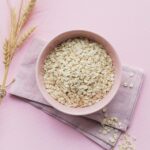Everyone’s familiar with protein. We have protein-rich diets, like the Paleo, Ketogenic, and Atkins diets. You can add protein-dense bars and protein powders to your morning smoothie for an added energy boost, whether you’re an athlete or not.
But protein isn’t that simple. And not all proteins are made equally. So, keep reading to learn about the best protein types and ensure you’re getting them in all the right amounts.
What Does Protein Do for Your Body?
Proteins can be found throughout the entire body. In fact, they’re the essential building blocks for a healthy, thriving body. That’s because protein is a structural component for your hormones, cellular receptors, enzymes, organs, muscles, and tissues.
Along with being essential structural components of a healthy body, proteins act as carriers and transport various nutrients throughout the body.
But instead of diving too deep into complicated biology and physiology, we can easily identify several health benefits when it comes to protein:
- Protein keeps your blood sugar levels stable
- Protein improves cognitive function and can reduce brain fog
- Protein can help you lose weight
- Protein provides a steady source of energy
- Protein supports the growth and repair of muscle and bones
- Protein supports new cellular growth
- Protein supports basic functions in the body
So if you’ve been wondering ‘why is protein important’, these are just a few health benefits of protein intake. It’s one of the nutrients you may lack, so it’s wise to increase your protein intake daily.
Best Sources of Protein
Each of the three essential nutrients (fats, carbohydrates, and proteins) have their good and bad types. There are healthy medium-chain fatty acids, and then there are nasty trans fats. There are complex carbohydrates as well as high fructose corn syrup. When it comes to proteins, there are healthy proteins and some protein sources that are not so beneficial.
Sometimes, in our well-intentioned attempt to eat a healthy, balanced diet, we include proteins into our diet that are not only unnecessary but potentially harmful, too.
So, let’s take a look at the good types of protein and why you should include them as part of your balanced diet. The good news is that no matter what sort of diet you follow, there’s a good protein source for you, whether you’re an omnivore, vegetarian, pescatarian, vegan, etc.
Organic Beef
Everyone knows that beef is a good source of protein, but be sure that you eat high-quality beef. Otherwise, you’ll get protein, but you’ll also consume unnecessary antibiotics, steroids, and meat from generally very unhealthy animals.
Since animal meats can be high in saturated fats, it’s important not to overdo it on your meat consumption. Having grass-fed, organic beef one to two times a week is a great way to include protein into your diet without eating too much saturated fat.
Beef, however, still remains one of the best high protein foods, especially for its complete amino acid profile.
Organic Chicken
One advantage of eating chicken instead of beef is that it’s one of the sources of lean protein.
However, be sure only to consume high-quality chicken. Unfortunately, the chicken industry cares little about the health or diet of the animal, and chicken meat can be ridden with antibiotics, steroids, and traces of a diet filled with GMO grains, including soy.
As long as you eat organic chicken, you can enjoy this lean protein source even daily.
Eggs
Eggs are sometimes called perfect food because they contain all 11 amino acids. What’s more, they can be eaten in a variety of ways: fried, scrambled, poached, boiled, baked, etc.
One large egg alone provides up to seven grams of protein. Since one large egg contains only about 70-80 calories, it’s also one of the best low calorie high protein foods.
Goat Cheese
Why is goat cheese a better source of protein than cow milk cheese? Dr. Axe explains that goat milk, and therefore goat cheese, is easier for the body to digest because it contains A2 casein protein rather than the A1 casein protein typical of cow’s milk.
However, regular cheese is also one of the best sources of protein, especially if you choose a low-fat kind. Feta cheese is a great addition to a high protein diet: you can easily add feta to a simple salad for a protein boost.
Yogurt
Yogurt is an excellent food source because it provides healthy protein and supplies the gut with probiotics that strengthen the immune system and populate the gut flora with beneficial bacteria.
If you’re looking for the most protein dense foods, low-fat Greek yogurt is an excellent choice. Fat-free Fage contains 16 grams of protein per container (150 grams), which provides about 30% of daily protein intake. Such easy sources of protein are not that simple to find, so Greek yogurt could become a staple in your high protein diet for its simplicity.
Nato
Soy is often touted as a healthy protein source, but remember that the best source of soy-based protein comes in the form of fermented soy products. And nato is one such product. It’s a tangy Japanese specialty that might be new to you but provides a safe source of soy and protein.
All soy products, however, are great protein rich foods, as soy contains all essential amino acids and is therefore a complete protein.
Lentils
If you’ve been looking for sources of protein other than meat, then lentils are the answer.
This ancient food is a protein-rich option for vegetarians and vegans alike. Just one cup of lentils provides the body with 18 grams of protein. This protein is very beneficial to the body because it helps support cardiovascular health and the digestive system. Moreover, it regulates the body’s blood sugar and pH levels.
Beans
Beans are an obvious choice for protein-rich foods, but which beans are best?
Experts recommend black beans as being one of the top bean sources. One cup provides 15 grams of protein, and you’ll also get a nice fiber dose. This is a food that also cleans out your digestive tract, so all around, it’s a great option. Beans are also a low calorie protein source.
Almonds
Generally, nuts are a great source of protein. Almonds are particularly beneficial because they contain fiber, antioxidants, and unsaturated fatty acids. Unsweetened almond butter can be a great weight to sneak this healthy protein into your diet.
If you decide to eat nuts, remember to soak them to neutralize the phytic acid that can be difficult for your body to digest.
Seeds
Hemp and chia seeds are excellent examples of proteins with many added nutrition perks. Three tablespoons of hemp seeds provide up to 11 grams of protein and all 20 amino acids. Chia seeds offer a little less protein for every three tablespoons, but like hemp seeds, they have high amounts of omega-3 fatty acids, making both hemp and chia seeds a very beneficial protein source.
Anyone wondering how to get enough protein could add some almonds and seeds to Greek yogurt for a simple, high-protein, low-calorie breakfast.
Protein Sources You Should Avoid
As you can see, many healthy sources of protein exist, and that’s only a partial list! Now, it’s time to look at protein sources you should avoid. The protein in these foods is not only low quality but sometimes, even harmful.
Protein Powder
Protein powders have become a bona fide kitchen staple, whether you exercise a lot or not – everyone knows these are the highest sources of protein. And while these sweet-tasting powders add a little oomph to your morning smoothie, you might reconsider using them. Here’s why.
If you use soy-based protein powder, you’re probably unaware of the manufacturing process behind the scenes. Factories boil defatted soybean flour with a corrosive solution that removes the fibers from the flour.
Then, the remaining substance is washed with acids to draw out the protein. What emerges are protein curds that are treated in a final alkaline mixture before they are dried at high temperatures.
That might have all sounded a bit technical and dry, but when you think about how these foods interact with your body, you might want to rethink adding this benign-looking powder into your diet. Soy proteins like these are connected with problems in the pancreas and digestive system.
If you’d like to add protein powder to your diet, only consume grass-fed whey protein without any added sweeteners or additives.
Protein Bars
Protein bars are a quick and easy way to consume protein, especially if you don’t have time to cook a steak at home. But these bars don’t just give you protein. They usually give you too much of it – sometimes, one bar can contain up to 30 grams of protein.
Because these bars have lots of added sugars, you could consume too many calories, too. Protein bars can be good sources of protein in a quick need, but these are definitely not the healthiest protein sources.
Processed Meats
While it’s true that organic red meat is an excellent source of protein, that doesn’t mean that processed meats are a good place to look for dietary protein.
Sausages, burgers, bacon, and other manufactured products are full of sodium, preservatives, additives, questionable ingredients, and unhealthy fats. So, it’s best to avoid these foods altogether.
The best high protein meats are lean organic meats, such as grass-fed beef, free-range chicken, etc.
How Much Protein Do I Need?
The Institute of Medicine (IOM) suggests the following Recommended Daily Allowance (RDA) regarding protein: For every kilogram of body weight, you should consume 0.80 grams of protein. Or, for every pound of body weight, you should consume 0.36 grams of protein.
That boils down to about 46 grams of protein for the average woman and 56 grams for the average man.
Another helpful way to track your protein intake is to think of protein in blocks of 25 grams. For example, one serving of meat (such as red meat, chicken, salmon, or liver) that weighs about 100 grams offers about 25 grams of protein.
Regarding cheese, 80 grams usually provides about 25 grams of protein. Four eggs or three cups of milk are two other protein blocks that offer 25 grams of protein each.
Women need about two to three 25-gram blocks of protein each day. Men, on the other hand, need up to four of these 25-gram blocks.
Special Protein Requirements
Specific individuals need more protein than others, including the elderly, pregnant, or seriously athletic individuals.
While it’s always best to check with your primary care physician to decide on the best amount of protein for your daily needs, if you fall into one of these three groups, you probably need to increase your protein intake to 25 percent more than the average person.
Can You Consume Too Much Protein?
The answer is, “Yes!” Because many diets already include far too many animal products, it’s very easy for people to consume too much protein. What’s more, with the popularity of protein powders, many people are adding an unhealthy source of protein to their already protein-dense diet.
This can speed up the aging process as well as cancer growth. Dr. Mercola shares that if 20 percent or more of your daily caloric intake is made up of protein, you can have a 400 percent higher cancer rate.
There are other risks associated with overconsumption of protein, so it’s something to be aware of when planning your daily meals. Plus, if you eat more protein than your body requires, the excess protein gets converted into fat in your body, making the extra protein intake useless (especially during a weight loss phase).
Most people benefit from adding lean protein foods into their daily diet, especially since the modern American diet lacks healthy protein sources in most cases. Add some more Greek yogurt, lean meats beans or lentils to your diet to reap some of the important health benefits that protein provides.








